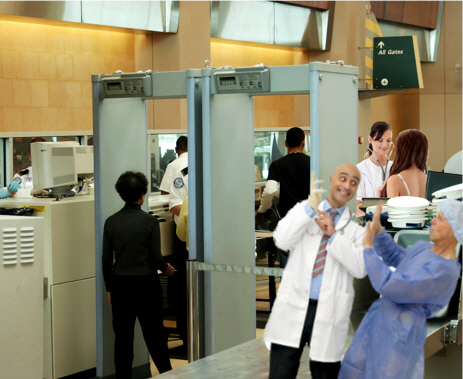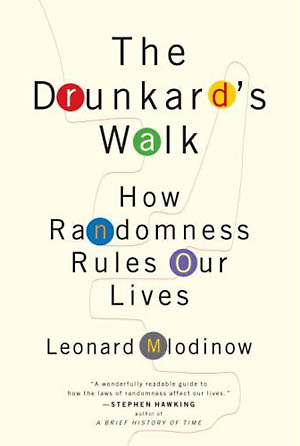 The book Critical Decisions: How You and Your Doctor Can Make the Right Medical Choices Together by Peter A. Ubel, MD effectively makes the case that good medical decisions require empowered patients, clinicians prepared to support them and techniques to help them communicate.[1] Better than any existing literature, this book highlights techniques and behaviors that clinicians must use to support the empowered patient, and suggests significant improvements to decision aids.
The book Critical Decisions: How You and Your Doctor Can Make the Right Medical Choices Together by Peter A. Ubel, MD effectively makes the case that good medical decisions require empowered patients, clinicians prepared to support them and techniques to help them communicate.[1] Better than any existing literature, this book highlights techniques and behaviors that clinicians must use to support the empowered patient, and suggests significant improvements to decision aids.
The book is informative, comprehensive, and accessible. It is an important resource for clinicians and patients who want to learn ways to better communicate to each other in making health care/medical decisions.
The first part of the book, “The Rise of the Empowered Patient,” presents the history of medical decision making — starting with ancient Greece and Hippocrates, continuing with the ethics of experimentation of the mid 20th century, and concluding with a detailed account of the seeds of the empowered patient movement starting in the 60s… (Read more at the Journal of Participatory Medicine)
What Airplane Safety, Mammograms, and Gun Massacres Have in Common
 Gun rights advocates are correct: a well armed principal might have reduced the death toll from the tragic elementary school shootings in Connecticut last week. Gun carrying citizens might also have been able to take down the shooters in Aurora and Virginia Tech. To most people, after all, guns are about self-defense, not about committing crimes. As the old saying goes: “There has never been a mass shooting at a gun show.”
Gun rights advocates are correct: a well armed principal might have reduced the death toll from the tragic elementary school shootings in Connecticut last week. Gun carrying citizens might also have been able to take down the shooters in Aurora and Virginia Tech. To most people, after all, guns are about self-defense, not about committing crimes. As the old saying goes: “There has never been a mass shooting at a gun show.”
On the other hand, gun control advocates are correct to point out that mentally disturbed people like Adam Lanza would not be able to commit massacres if they were prevented from getting their hands on high-powered, semiautomatic weapons. They are also correct to point out that Americans have staggeringly easy access to weapons that far exceed what any sportsmanlike hunter would use during deer season.
In other words, figuring out what to do in the wake of the Connecticut massacre means recognizing the truth in both of these views. It means considering the possibility that the answer to reducing gun violence is a matter of both having more guns and less… (Read more and view comments at Forbes)
The Way Physicians Break Bad News is Broken
 Imagine picking up a telephone and hearing your doctor tell you there is a “999 out of 1,000 chance that you’ll be dead within a decade.” That’s what Leonard Mlodinow experienced in 1989, when his routine HIV test didn’t turn out the way he expected. Mlodinow tells this story in his 2008 book, The Drunkard’s Walk, a book in which he highlights how randomness affects people’s lives and, just as importantly, how frequently we human beings misperceive this randomness as following from predictable laws. We mistake the drunkard’s walk for purposeful movement.
Imagine picking up a telephone and hearing your doctor tell you there is a “999 out of 1,000 chance that you’ll be dead within a decade.” That’s what Leonard Mlodinow experienced in 1989, when his routine HIV test didn’t turn out the way he expected. Mlodinow tells this story in his 2008 book, The Drunkard’s Walk, a book in which he highlights how randomness affects people’s lives and, just as importantly, how frequently we human beings misperceive this randomness as following from predictable laws. We mistake the drunkard’s walk for purposeful movement.
Mlodinow tells the HIV story to illustrate his physician’s inability to think probabilistically. But I think the story just as profoundly illustrates the difficulty many doctors have…(Read more and view comments at Forbes)
Are Infertility Doctors Turning into Predatory Bankers?
 Somewhere near where you live, a couple will discover this week that they are infertile and that if they want biological children of their own, they are going to need in vitro fertilization (or IVF). According to treatment protocol, the woman will need to take powerful medicines to ramp up her production of fertilizable eggs. One monthly cycle of this treatment will run around $12,000. But most couples require more than one cycle to achieve their goal of carrying a child to term. In other words, this couple could easily be looking at a bill exceeding $30,000 or $40,000.
Somewhere near where you live, a couple will discover this week that they are infertile and that if they want biological children of their own, they are going to need in vitro fertilization (or IVF). According to treatment protocol, the woman will need to take powerful medicines to ramp up her production of fertilizable eggs. One monthly cycle of this treatment will run around $12,000. But most couples require more than one cycle to achieve their goal of carrying a child to term. In other words, this couple could easily be looking at a bill exceeding $30,000 or $40,000.
And did I mention that this money could all come out of their own pockets? Because not all insurance companies pay for in vitro fertilization.
No worry though. Their infertility physician informs them about a company he has worked with that specializes in infertility loans. He even offers to have his office staff help the couple fill out the necessary paperwork… (Read more and view comments at Forbes)
Legends of the Fall Semester?
 In case the Internet had any remaining credibility, as a source of truthful information, the MBA channel now lists me as a B School legend:
In case the Internet had any remaining credibility, as a source of truthful information, the MBA channel now lists me as a B School legend:
The U.S. based website Poets & Quants has published a different kind of ranking. They haven’t chosen the best b-schools, but instead paid tribute to some of the best b-school teachers. Amongst them are a few legends of the academic community like Harvard’s Clayton Christensen, Wharton’s Jeremy Siegel, Stanford’s Jeffrey Pfeffer, Dartmouth’s Vijay Govindarajan, NYU’s Aswath Damodaran, Duke’s Peter Ubel, and London Business School’s Lynda Gratton.
Evaluating the Quality of Charter Schools and Tertiary Care Hospitals
 If Americans judged the quality of hospital care the way Newsweek judges high schools, we would soon be inundated with “charter hospitals” that only treat healthy patients.
If Americans judged the quality of hospital care the way Newsweek judges high schools, we would soon be inundated with “charter hospitals” that only treat healthy patients.
As reported in The New YorkTimes , thirty-seven of Newsweek’s top 50 high schools have selective admission standards, thereby enrolling the cream of the eighth grade crop. That means that when these high scoring eighth graders reach eleventh grade, they’ll be high scoring eleventh graders, helping the school move up the Newsweek rankings. These selective admission schools simply have to avoid screwing up their talented students.
That’s no way to determine how good a school is. The measure of a good education should be to assess how well students did in that school compared to how they would have been predicted to do if they had gone to other schools… (Read more and view comments at Forbes)
